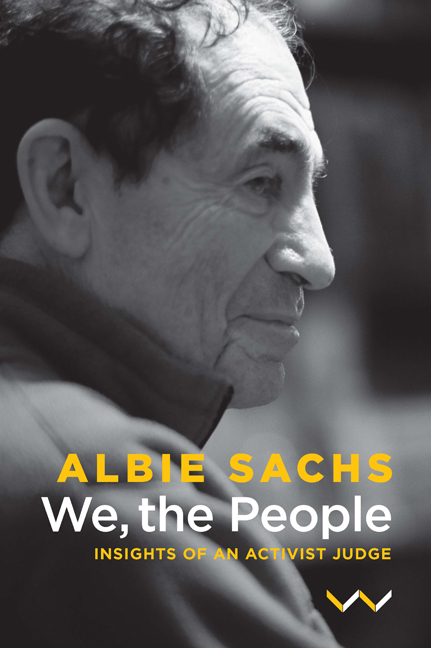Book contents
- Frontmatter
- Acknowledgements
- Miscellaneous Frontmatter
- Contents
- Figures
- Introduction
- 1 In the Beginning
- 2 Hope and Caution in Exile
- 3 We Have to Mistrust Ourselves
- 4 Inventing A Constitution
- 5 With Clean Hands and Without Secrets
- 6 Reconciling the Past and the Future
- 7 Living Constitutional Law and Ubuntu
- 8 More than Crumbs from the Table: Enforcing Social and Economic Rights
- 9 Struggle Continues
- 10 Are the Beautiful People Born?
- Cases Cited
- Sources
- Index
3 - We Have to Mistrust Ourselves
Published online by Cambridge University Press: 21 April 2018
- Frontmatter
- Acknowledgements
- Miscellaneous Frontmatter
- Contents
- Figures
- Introduction
- 1 In the Beginning
- 2 Hope and Caution in Exile
- 3 We Have to Mistrust Ourselves
- 4 Inventing A Constitution
- 5 With Clean Hands and Without Secrets
- 6 Reconciling the Past and the Future
- 7 Living Constitutional Law and Ubuntu
- 8 More than Crumbs from the Table: Enforcing Social and Economic Rights
- 9 Struggle Continues
- 10 Are the Beautiful People Born?
- Cases Cited
- Sources
- Index
Summary
I start with two poignant sayings I brought back home to South Africa with me after years of exile elsewhere in Africa. The first is: the beautiful people are not yet born. It is the deeply sad observation of a Ghanaian novelist on the disappointments of independence in his country, applicable to Zimbabwe today. The second is even harsher: a rich man's fart smells sweet.
The Kenyan writer Ngũgĩ wa Thiong'o felt this phrase was so apposite to the situation in his country that he used it several times in a recent novel. Young Kenyans could not imagine that the Father of the Nation, Jomo Kenyatta, patriarch, autocrat and amasser of fortunes, had once been a famous freedom fighter who had spent a decade in prison for opposing British colonial domination.
Will the post-apartheid generation feel the same about us?
We who have spent all our lives fighting power, now suddenly face the prospect of exercising it. Many of us are as fearful at the prospect of finding ourselves in office as those presently there are alarmed about giving it up.
At the moment when we are about to see the achievement of what we dreamt of, a kind of sadness rather than joy settles upon us. Where there should be a feeling of elated accomplishment, there is an emotion of disenchantment, in some cases even cynicism. Can it be that apartheid, by depriving us of the satisfaction that should go with its overthrow, will be winning its last victory?
We cannot recapture the elan and conviction of the earlier period. We should not even try. It is as though the political and social pluralism that we now acknowledge in a diverse civil society reflects itself in a corresponding deconcentration and dispersion of our joy.
There is no moment of victory, no VE [Victory in Europe] Day (when we celebrated the defeat of Nazism and end of the Second World War). We move with emotional difficulty from the heroic project of insurrection on a certain day, to the banal scheme of creating good government over a period of time. Is this what all the dreams and pain were for? Were we wrong in the dark and bitter days of the 1960s and 1970s to declare ‘no middle road’?
- Type
- Chapter
- Information
- We, the PeopleInsights of an Activist Judge, pp. 29 - 40Publisher: Wits University PressPrint publication year: 2016

